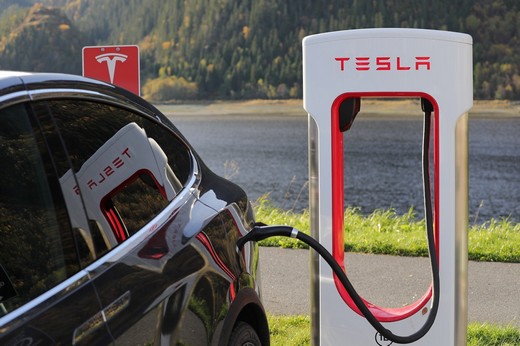
The stock splits of Apple (AAPL) and Tesla (TSLA) have now taken place - what does that mean for investors?
Nothing fundamentally changes with a company when it splits its stock; its market capitalisation remains the same, too. Companies usually split their stocks in an effort to make their share prices more attractive to individual investors, who may be put off by a too-high stock price. Read our guide to what is a stock split here, for more.
Below, Morningstar analysts share their post-split fair value estimates for both stocks.
Apple Still Looks Expensive
"With the start of trading on August 31, Apple will have initiated a 4-for-1 stock split that does not change our fundamental valuation of the company," says Morningstar strategist Abhinav Davuluri. Apple has announced the split during its most recent earnings call in late July, shortly before it became the first company to ever reach a market value of $2 trillion.
Prior to the share split, Morningstar's fair value estimate on the shares was $285. Post-split that's been revised to $71 a share. "While the split will make shares seem more affordable for small investors, we note the market cap and our overall valuation of the firm remain unchanged," says Davuluri.
Narrow-moat Apple remains well-positioned in the near term given the upcoming 5G iPhone, he notes, adding that there is also a stronger outlook for the Mac and iPad parts of the business thanks to the ongoing work- and learning-from-home dynamics. Davuluri says: "We recommend prospective investors wait for a wider margin of safety given the precarious state of the global economy, particularly as shares have appreciated more than 125% from mid-March lows."
Tesla's Potential Doesn't Justify its Valuation
Tesla's five-for-one stock split - its first split - took effect after the US stock market closed on August 28. The moves reduced the current share price from a hefty $865 to $173. Morningstar strategy David Whitson says that adding in the present value of what Tesla's autonomous vehicle ride-hailing (robo-taxi) business could be worth in 2030, puts it at a discount value of around $13.8 billion. This figure assumes Tesla captures 10% of the robo-taxi market share across the combined markets of the United States, European Union, and China, and charges $0.25 a mile.
Whitson adds: "Our weighted average cost of capital is 8.8%, and our midcycle operating margin is 11%. We expect the company to remain a leader in autonomous technology and range. Tesla is also gaining scale, and its ability to make desirable vehicles while generating free cash flow and net profit is far better than it's ever been, in our opinion."
This article originally appeared on Morningstar US






























